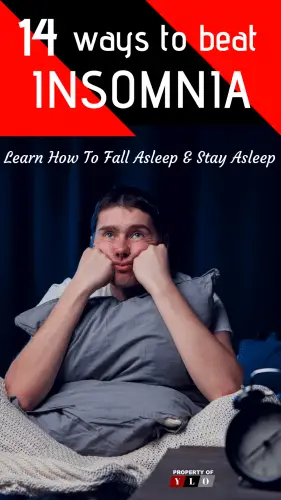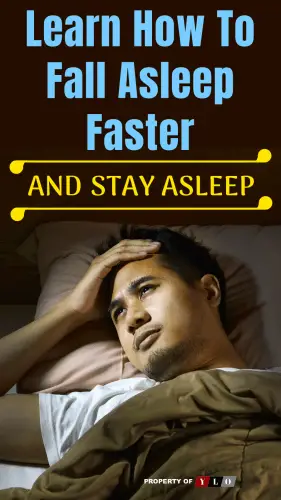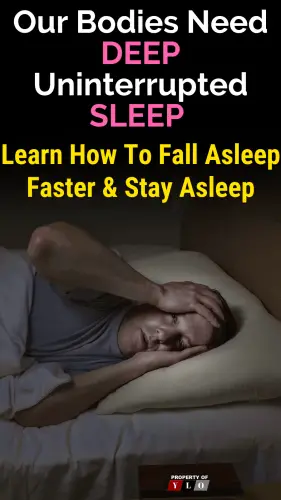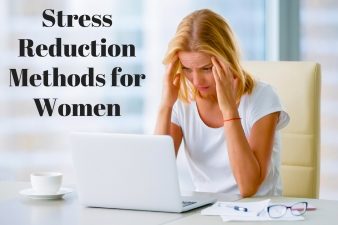How To Fall Asleep Faster and Stay Asleep is more of a problem than you think. The National Sleep Foundation poll revealed that 75 percent of American adults experience symptoms of a sleep problem at least several times a week. Moreover, chronic insomnia may affect 10 percent of the population.
Our Bodies Needs Deep Uninterrupted Sleep
For an insomniac, finding ways to fall asleep faster is highly important. Sleep is a vital process our bodies need in order to achieve maximum recovery and function.
Most of our “learning processes” happen during the hours of the night. Exhaustion and fatigue are conditions everyone suffers on a regular basis, whether physical or emotional, and they can lead to impaired response times and the speed in which we work.
Everyone suffers from sleeping difficulties, not just the insomniacs. Each night of sleep is different.
However, there are many ways to make falling asleep and staying asleep much easier. Nothing is 100%, but it’s a start that can steer you in the right direction to better and restful sleep.
If you aren’t a fan of using sleeping medication, there are plenty of natural ways to help you sleep.
Here are 14 Tips on How To Fall Asleep Faster and Stay Asleep.
1. Use Lavender
For the longest time, people have not believed in aromatherapy. It takes desperation to get one to even try it to begin with.
Lavender is an excellent essential oil which contains properties that slows brain waves. It relieves stress and anxiety and can be used in multiple forms.
You can use the oil itself, dabbing a bit behind the ear, or you can use a diffuser so that the scent spreads further. Some people have found that a pillow mist works best, spraying their pillow at night before bed.
Using lavender is becoming more popular and is now a ‘go to’ option when people struggle to sleep, for when Ibuprofen PM fails them.
2. Try Melatonin
Melatonin is a natural supplement. Our bodies make melatonin as it is, but sometimes not enough. But melatonin may not be as simple and safe a cure as many people hope. Do more research.
The supplements pose some risks, too. About 20 percent of users in our survey reported next-day grogginess.
Melatonin can also undermine blood pressure and diabetes medications. What’s more, “supplements aren’t regulated carefully, so what’s on the label may not be what’s in the pill,” says Marvin M. Lipman, M.D., Consumer Reports’ chief medical adviser.
If you want to try it, look for products with the “USP Verified” mark, which have been vetted by the nonprofit U.S. Pharmacopeia. And stick with low doses, too. Research suggests that 1 to 3 milligrams is enough for most people, and as little as 0.1 to 0.3 milligrams may be effective for some.

3. Watch What You Drink
Caffeine is one of the biggest adversaries to sleep. Being a stimulant, we use caffeine to give ourselves a boost in the mornings and sometimes in the late afternoons.
Some of us are more sensitive to caffeine than others. There are those who can have a cup of decaffeinated coffee or tea in the morning and still be awake in the early hours of the next morning.
Not everyone is that sensitive, but limiting caffeine when you have trouble sleeping is a good idea. It is best to stop drinking caffeinated drinks before the early afternoon.
If you would still like to have a hot beverage, try herbal teas like a chamomile blend or Sleepy Time teas. There is also Tension Tamer tea which works wonders, though it has a natural human sedative in that one (do not drink it if you are using other sleep aids).
Another drink to avoid is alcohol. Where some people think alcohol can help them to fall asleep, it can actually impede upon restful sleep.
Some people feel sleepy from drinking a glass of wine. But where it helped them fall asleep, they definitely didn’t stay asleep, and then they have trouble getting back to sleep later. That herbal tea is looking better and better.
4. Exercise During the Day
Exercise can definitely improve your quality of sleep, though if you’re performing a vigorous exercise, you should stick to day hours. The rush of adrenaline won’t help much for sleep.
If you have to exercise before bed, going for a short and slow walk or doing yoga are much better options than excessive cardio.
5. Try to Avoid Taking Naps During the Day
If you’re having difficulty sleeping, chances are that you’re feeling the exhaustion during the day. The first response to combat that exhaustion is to take a midday catnap.
This isn’t always for the best. If you have to take a short nap for the day, try 10 to 15 minutes.
However, if you are an insomniac, you have probably found that napping during the day kept you up later at night. And the cycle then begins all over again.
Try to not nap during the day, and usually, that helps. It’s better to work on developing a sleep schedule instead, namely going to bed at one set time and getting up at another set time. It isn’t always feasible, but it’s worth a try.
6. Get into a Bedtime Routine
If you fall into a nightly routine, that repeated behavior will inform your senses that it’s time for sleep. A nightly routine can involve any type of relaxing, quiet activity, or it can even be a bathroom regimen with quick facials and brushing your teeth.
7. Turn off ALL Electronics
Using electronics at night can interfere with the ability to sleep. The light from the devices can prevent the production of your natural melatonin.
The activities also keep your mind active. In fact, most doctors will tell you to avoid doing any kind of work in bed.
This included working on the computer and even doing schoolwork in bed. The bedroom is supposed to be a place for sleep and relaxation, not a place for the mind to be stimulated.

8. Take an Evening Shower or Bath
Taking a hot shower or bath in the evening is great. A bath is a great alternative to a shower since you can put up your hair to keep it dry.
There’s even a great bath recipe out there that really does help. Once a week for 20 minutes, you can sit in a hot bath that contains a handful of Epsom or sea salts, a half cup of baking soda, and 10 drops of lavender essential oil. This mixture can lower stress-related hormones, draw out toxins, and balance out pH levels.
9. Use a Weighted Blanket
This might come as a shock, but using this heavy blanket really does help promote restful sleep. It feels like your body is getting a giant hug, and the pressure helps relax the nervous system.
You’ll also stay nice and warm, and if you prefer cold, just stick a foot outside the cover. You’ll still get the full, peaceful sleep.
10. 10 Minutes
When you find yourself having trouble sleeping, it’s best not to just stay in bed awake. Instead of tossing and turning, doctors recommend that after 10 minutes of unsuccessful sleep, a person should get up, maybe go for a short walk around your home.
You could also read a book, but make sure not to read off a computer or phone screen. Remember the light from those devices can keep you up longer.
11. Journaling
If you’re not up for reading, try writing instead. Start a little sleep journal to write in when you can’t sleep.
It doesn’t have to be your first consideration if you really don’t want to turn on a light. But when you get to the point where you are about to wander the house, you might prefer to hole yourself up in the living room and write.
12. Deep Breathing
Many people recommend meditation to help with sleep, but sometimes we feel like mediation isn’t our strong suit. What you might try is deep breathing, focusing on your breath, that’s a part of meditation.
You don’t have to fully clear your mind but just focus on one singular point. When you practice your deep breathing, take a deep breath in slowly through the nose, hold for 5 seconds, and then breathe just as slowly.

13. Consult a Doctor
If nothing seems to be working and sleep continues to elude you, you should make an appointment with your physician or go to a sleep clinic. There could be underlying issues preventing you from sleeping.
You should visit a doctor after looking into all of the natural means, and plan to discuss them and check out his/her advice. Talk over each natural remedy. If you are still prescribed a sleeping aid, one that you both don’t want to have to take. Ask to see if it is a last resort and if you should try out his/her other recommendations first.
14. Try to Have a Good Night
At the end of the day, the worst thing to do is worry about whether or not you will sleep. You want to remain as stress-free as possible.
Try to take it easy at the end of the day and avoid being too active in the evening. Take the time to relax, and try out some of these techniques. You may find that some work better than others. In any case, we hope you have a good night.
A helpful article by WebMD: 20 Tips for Better Sleep



